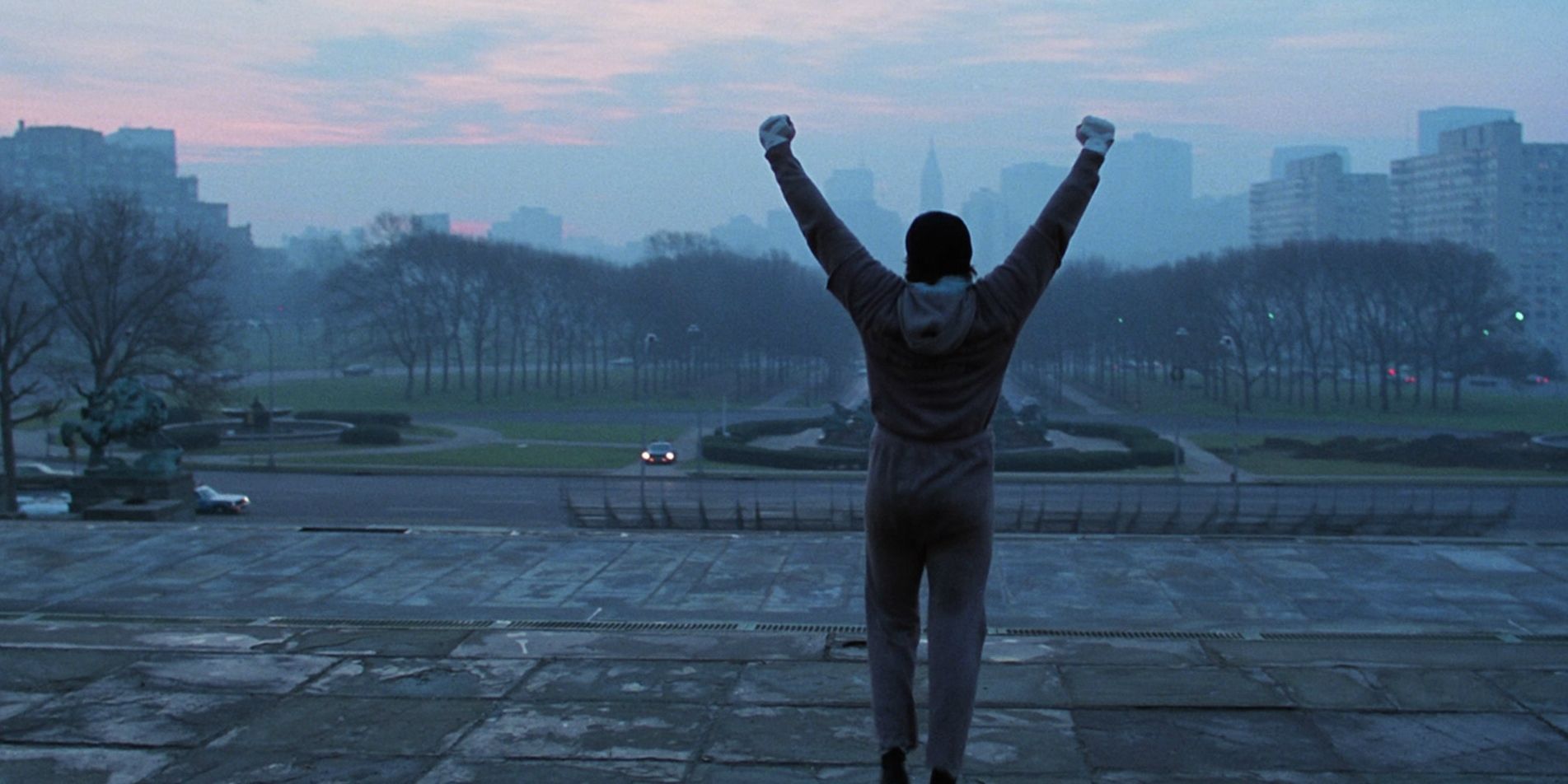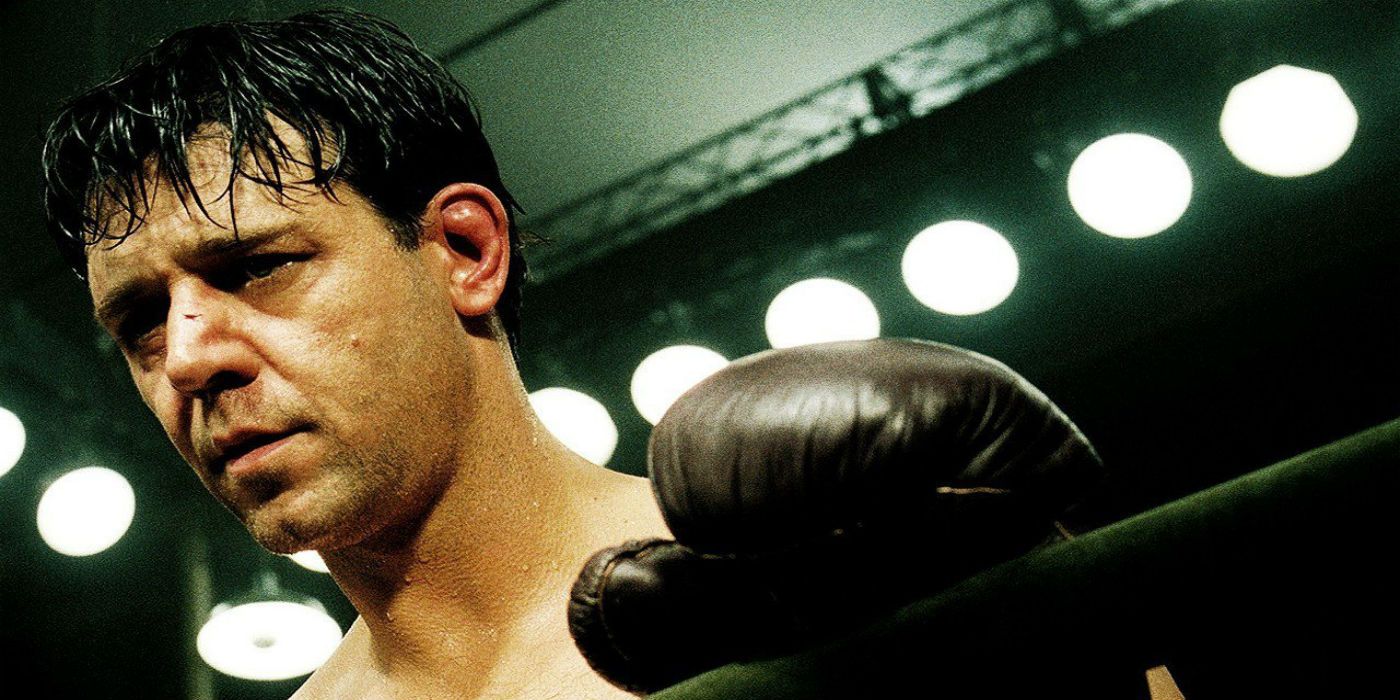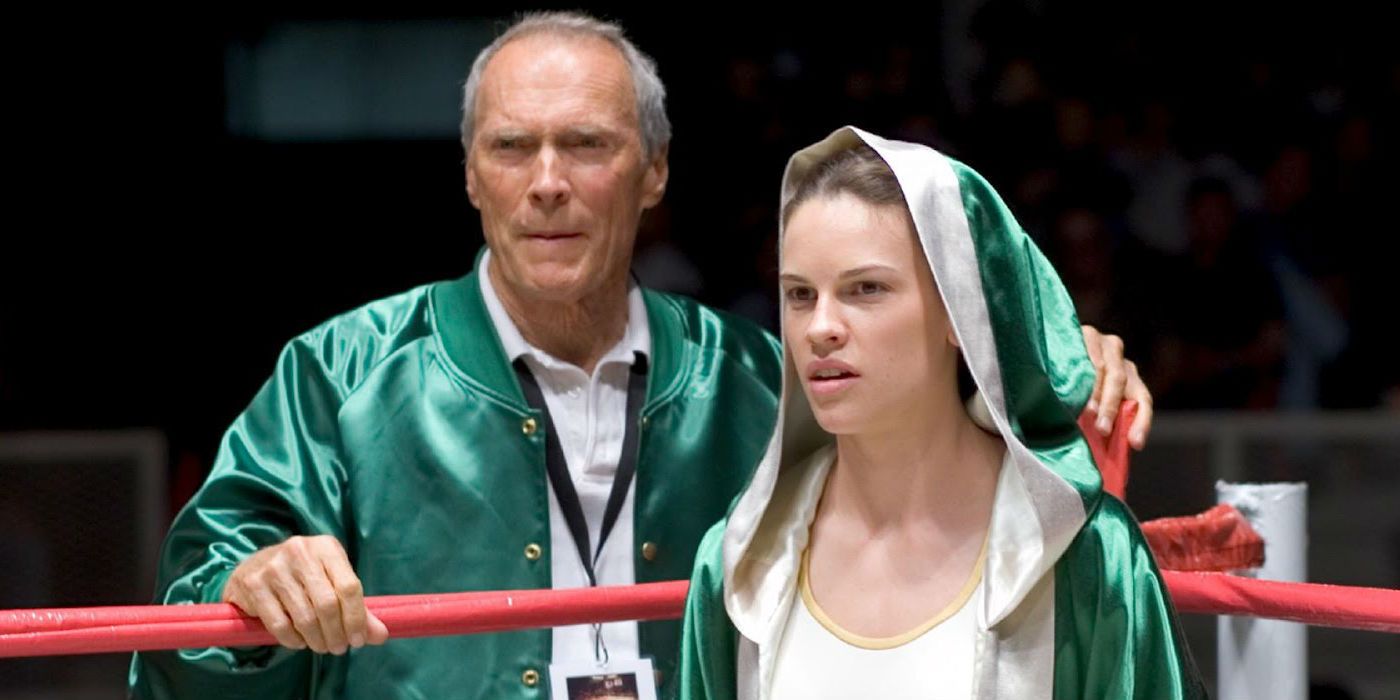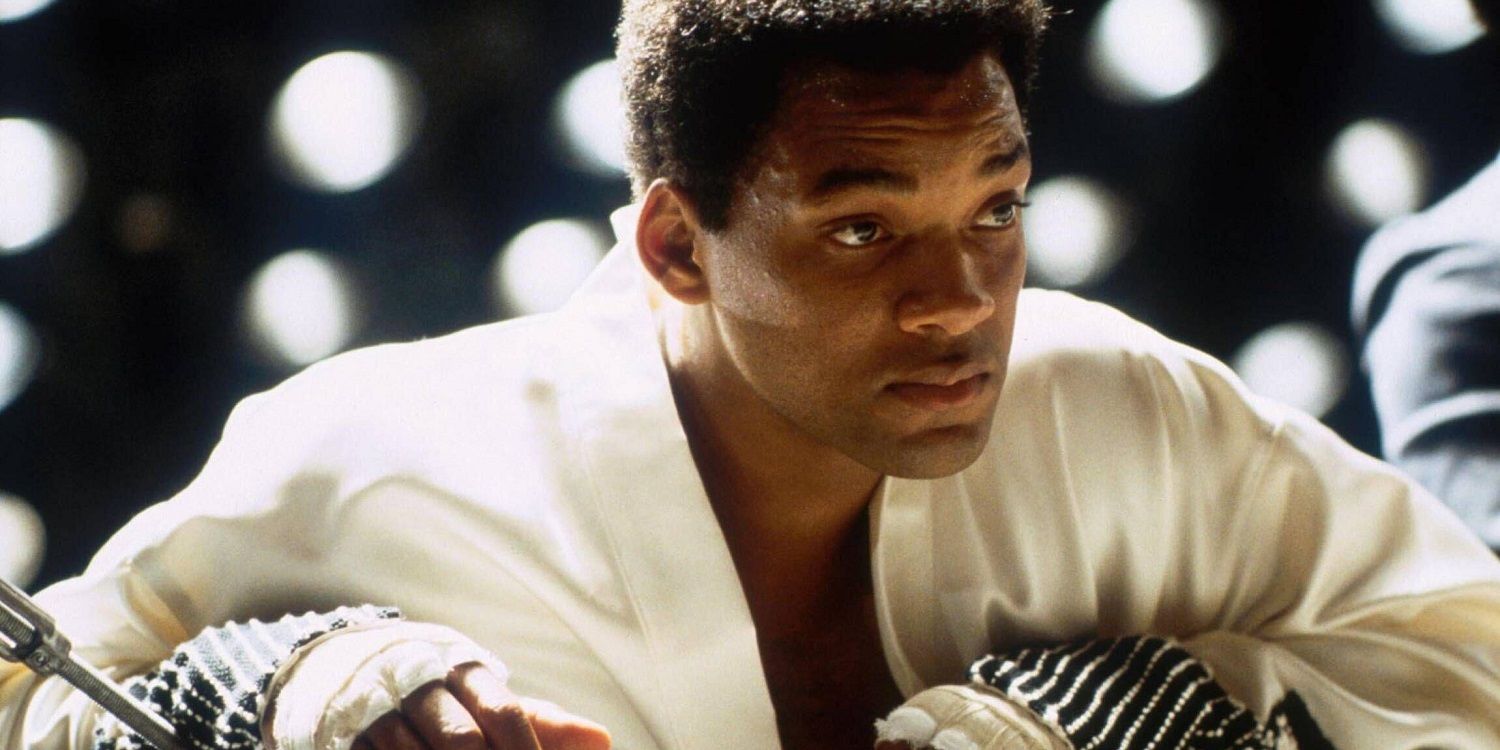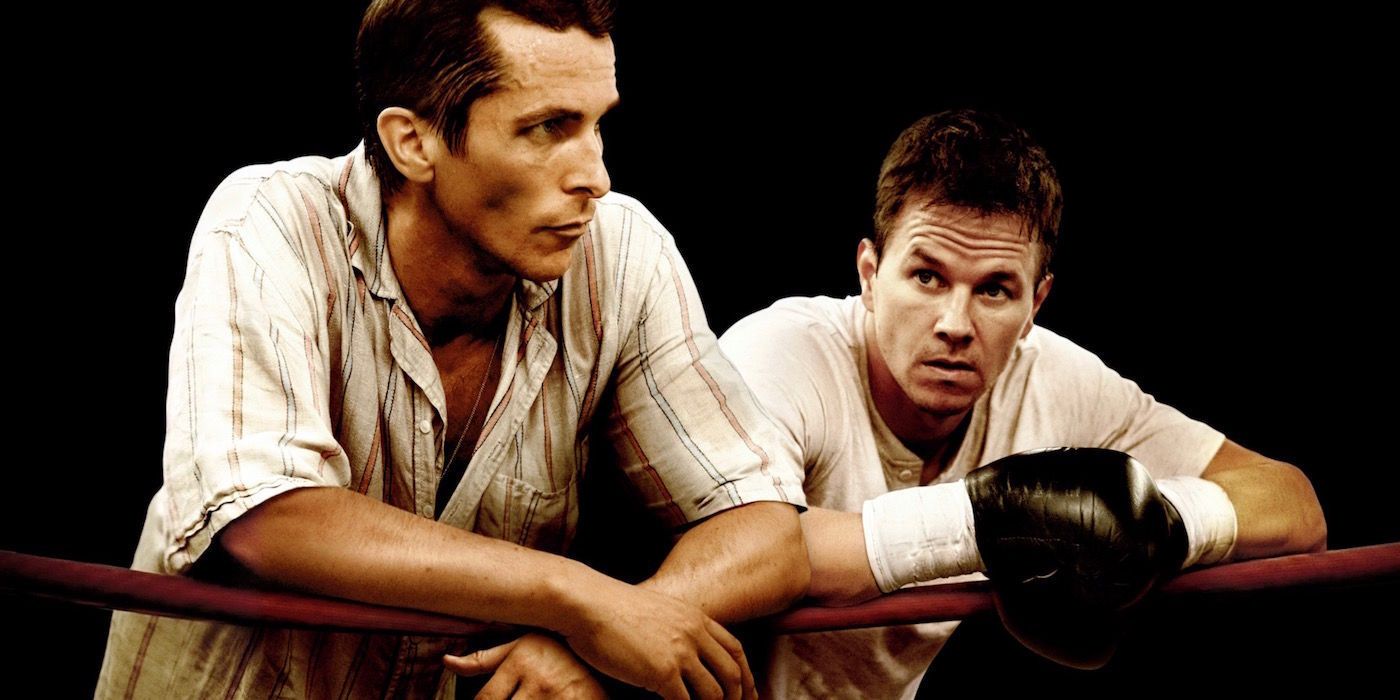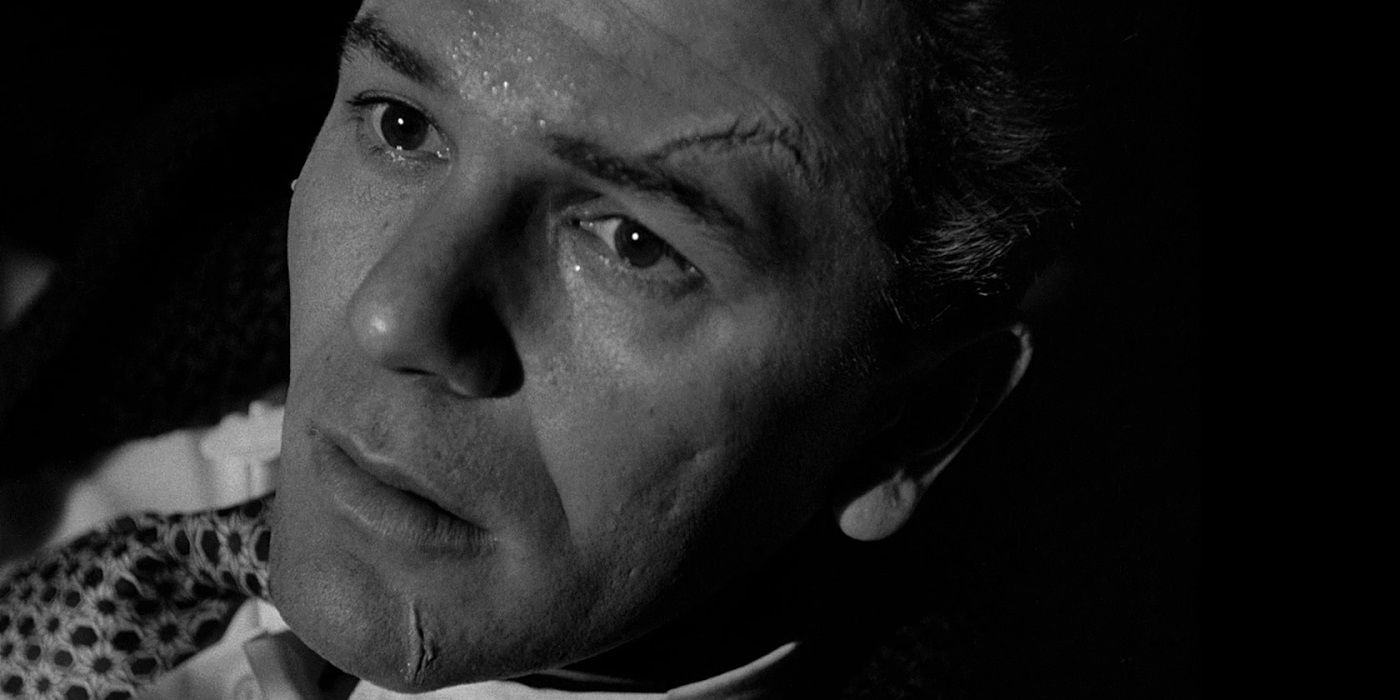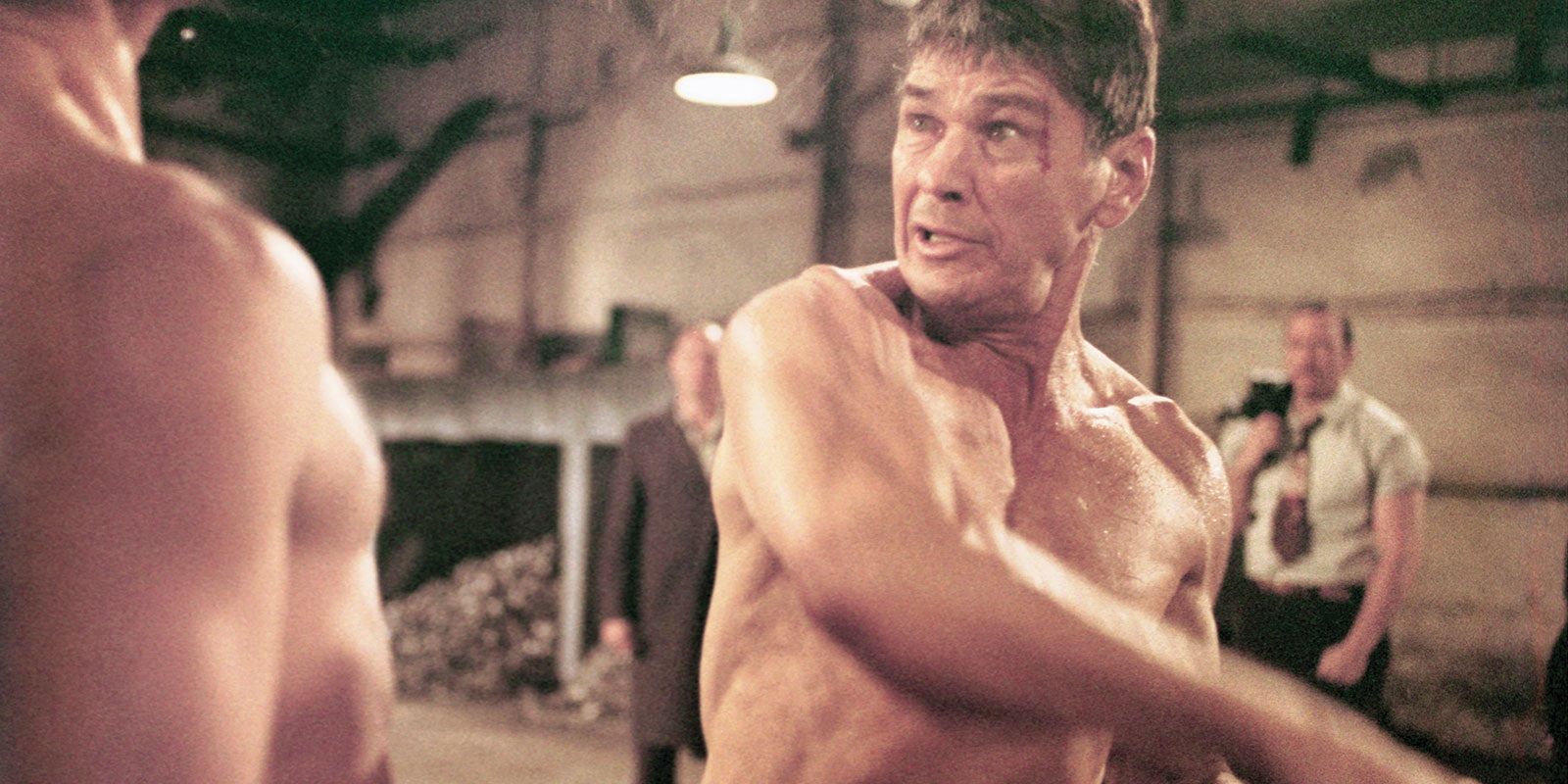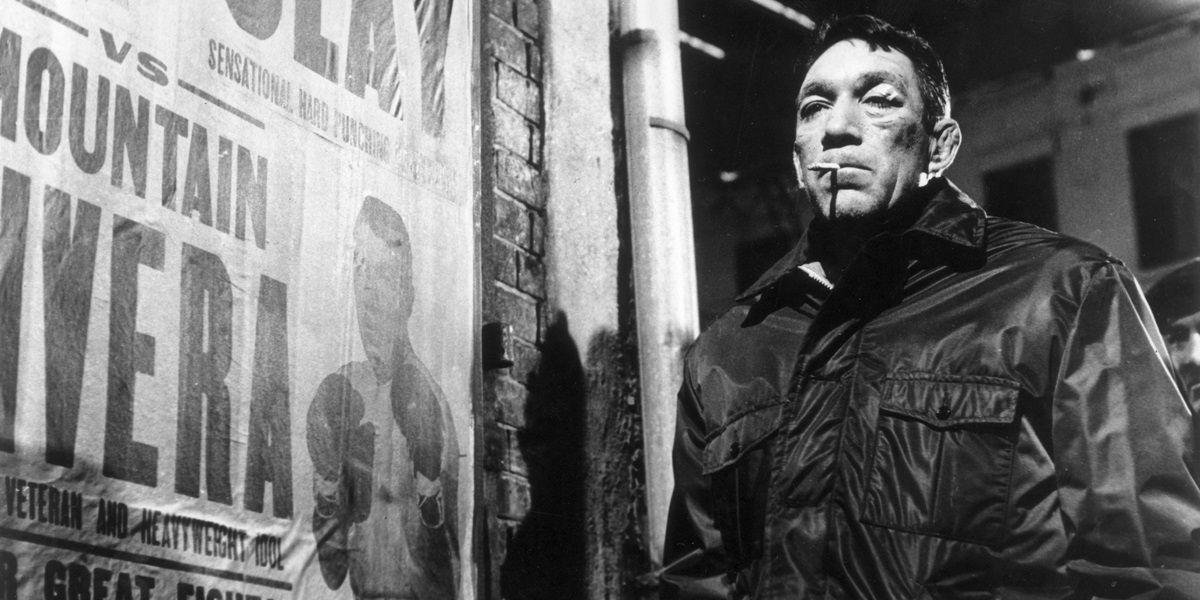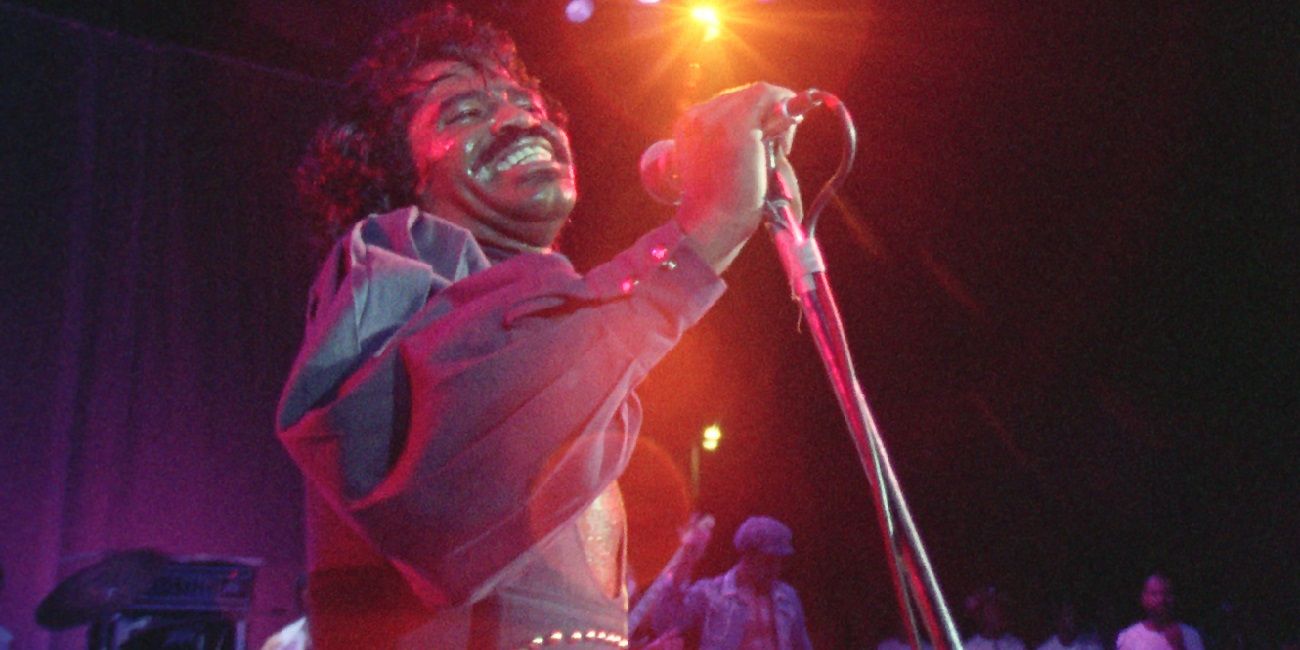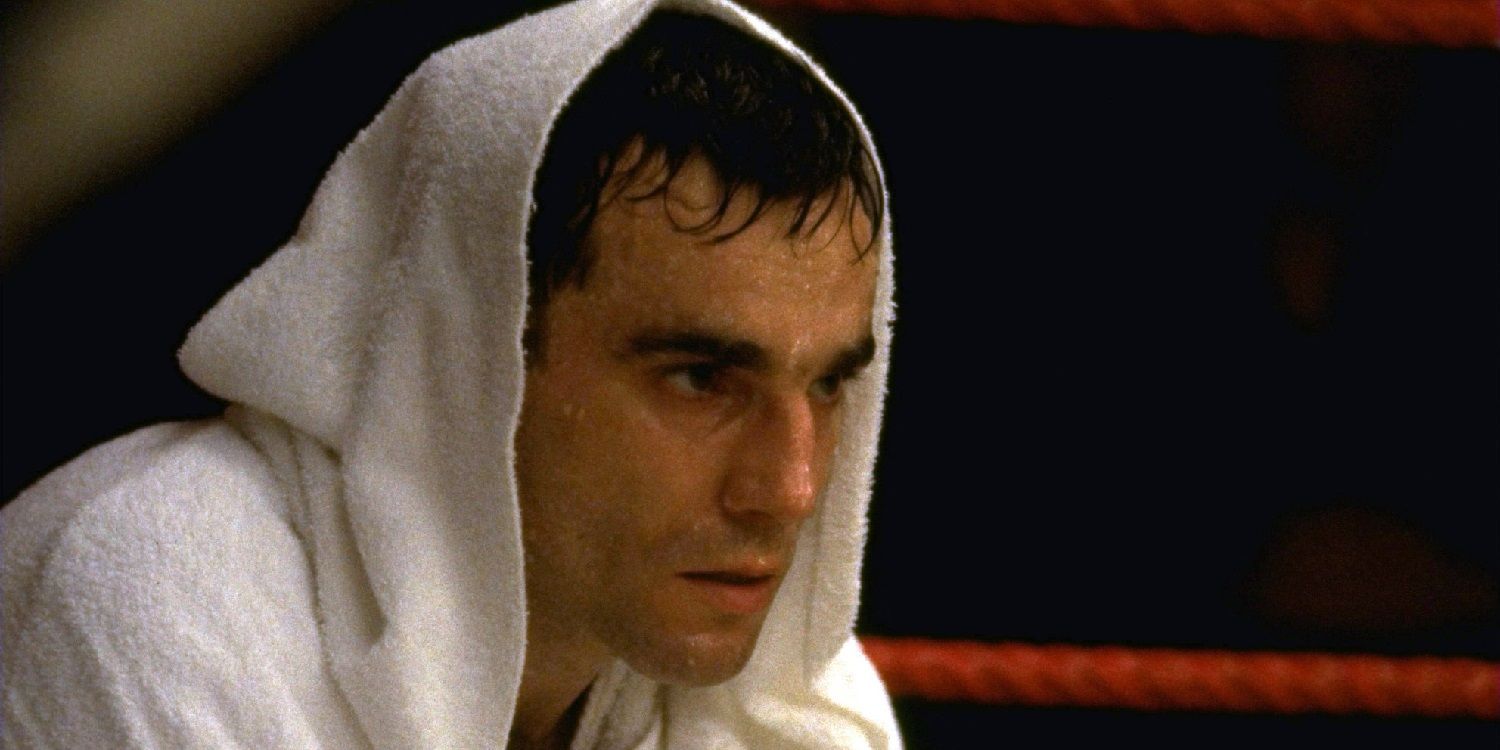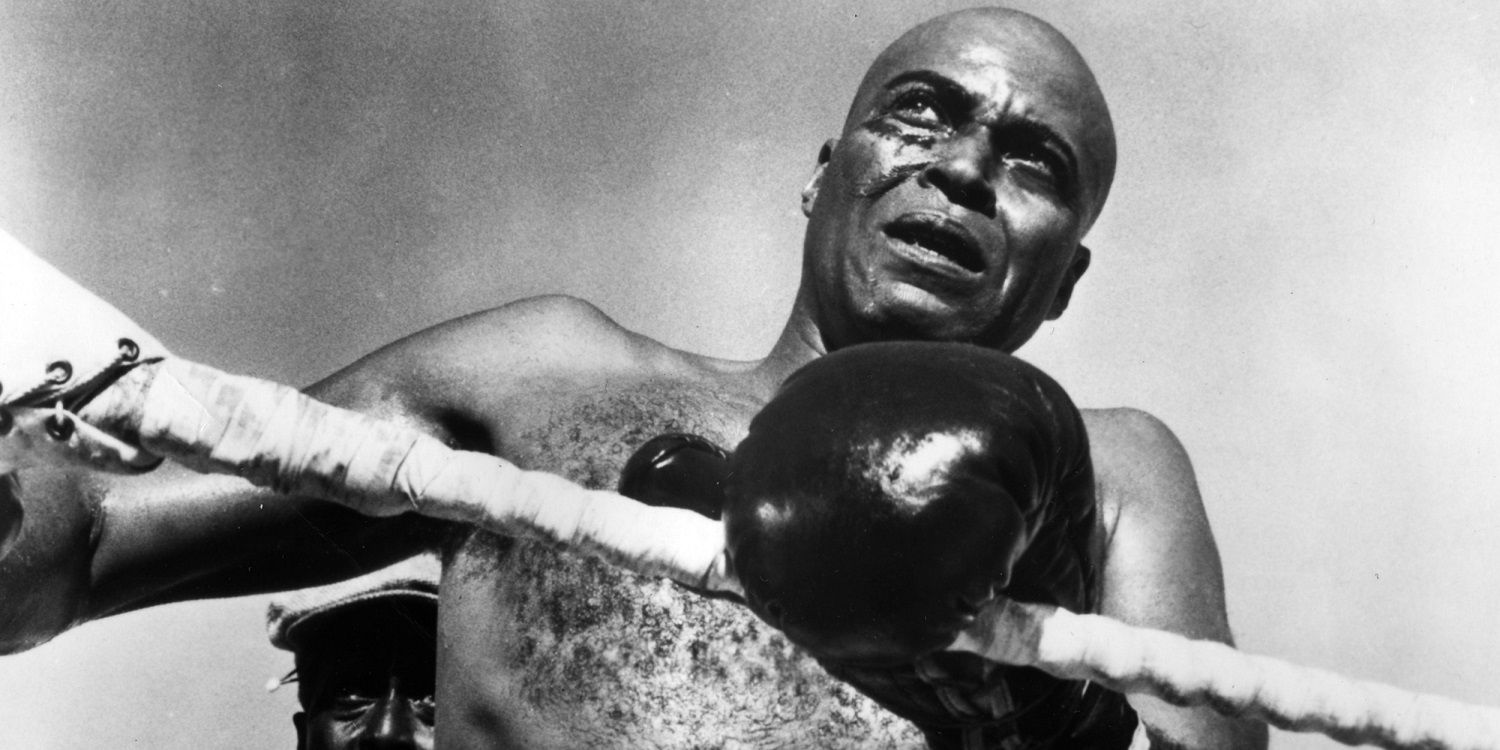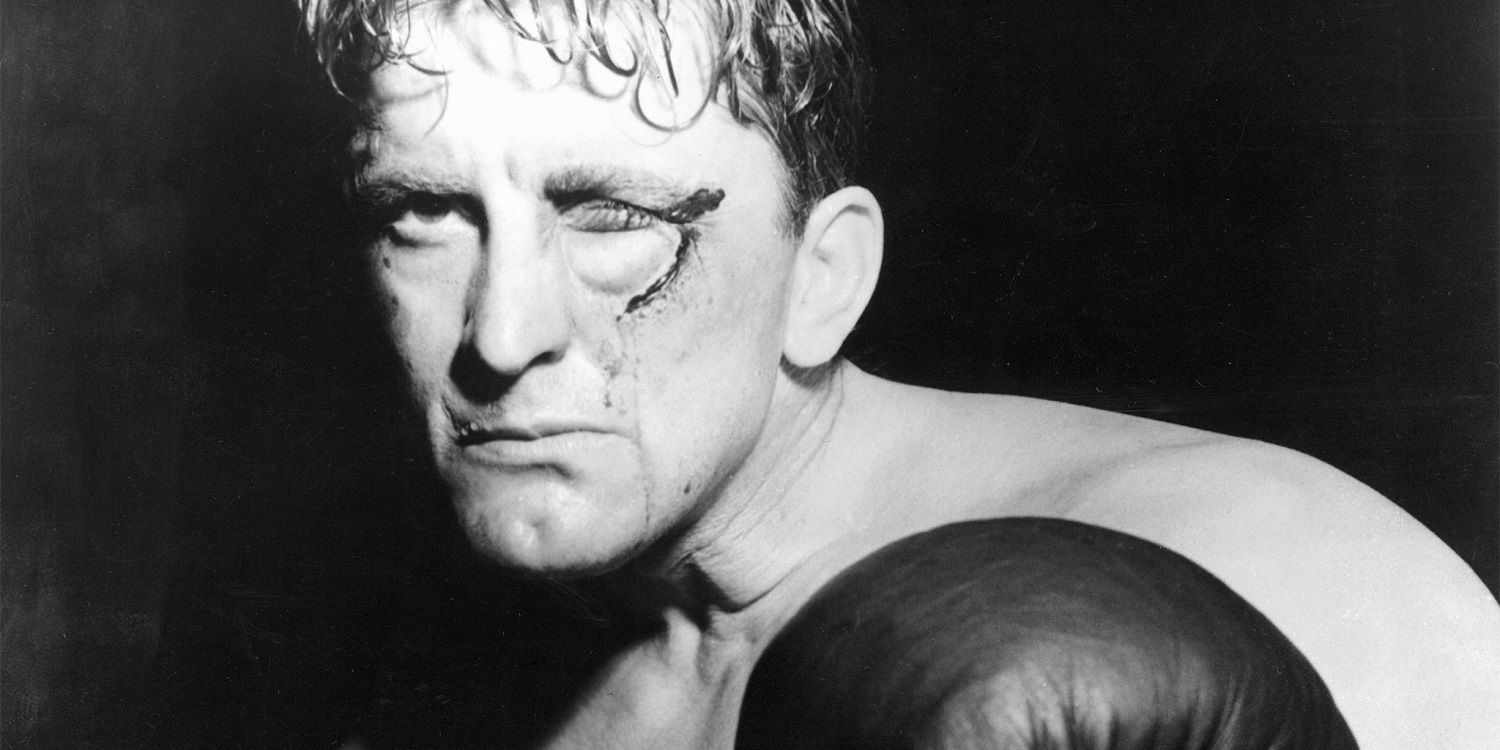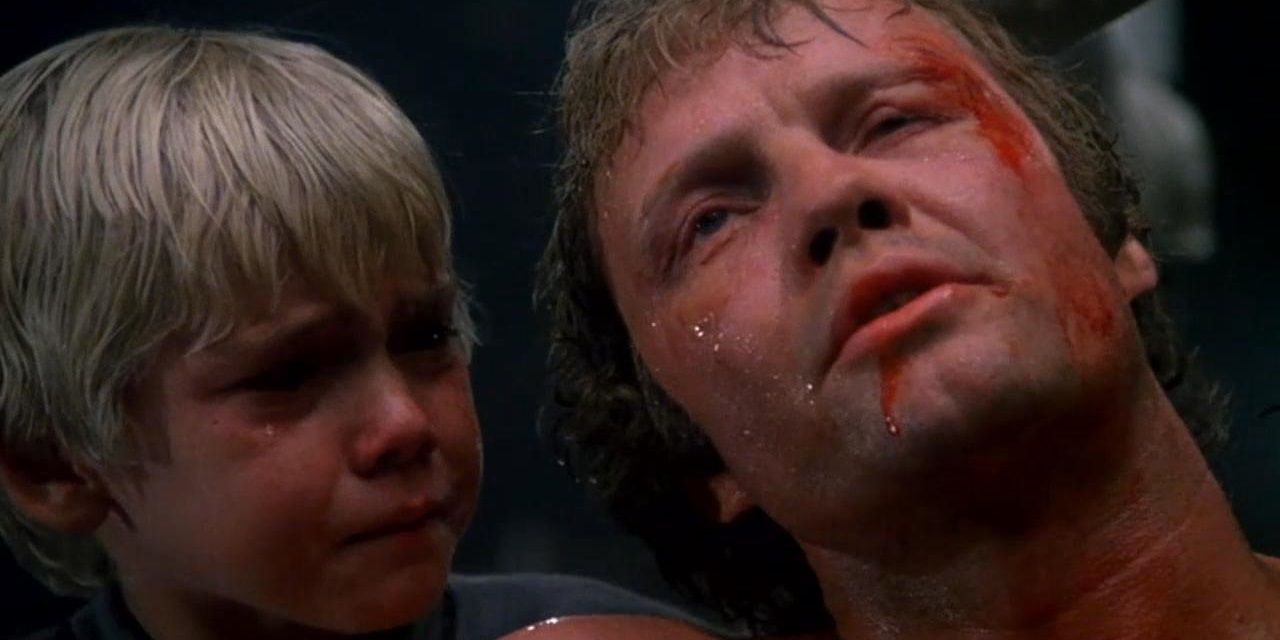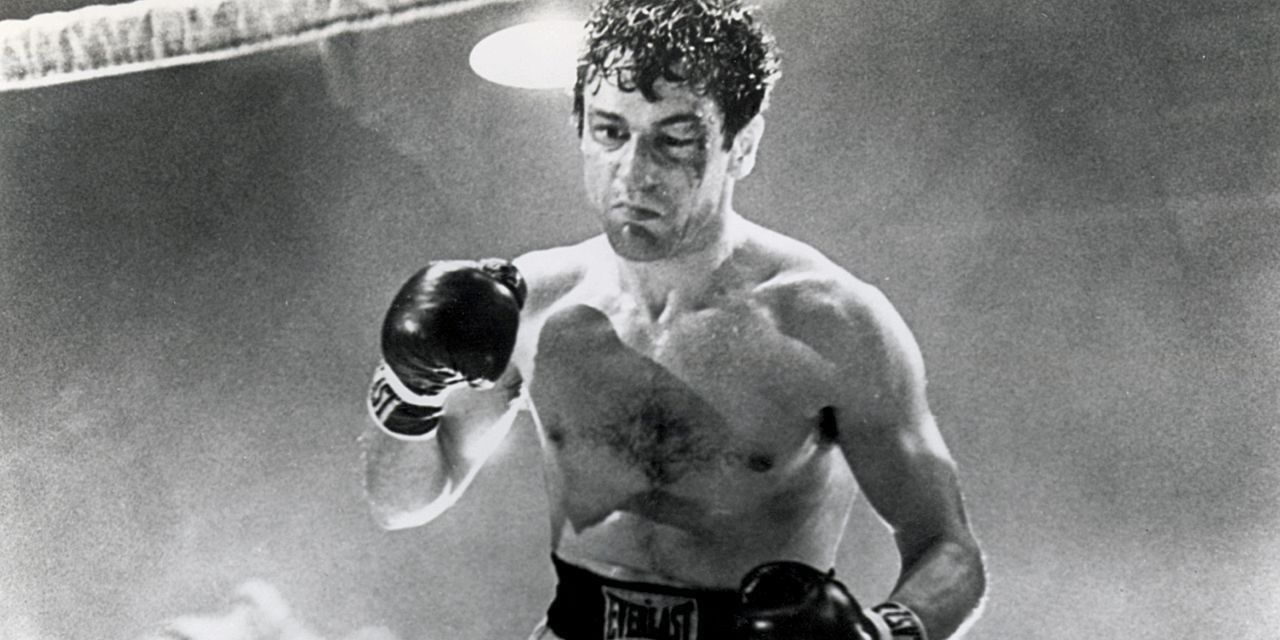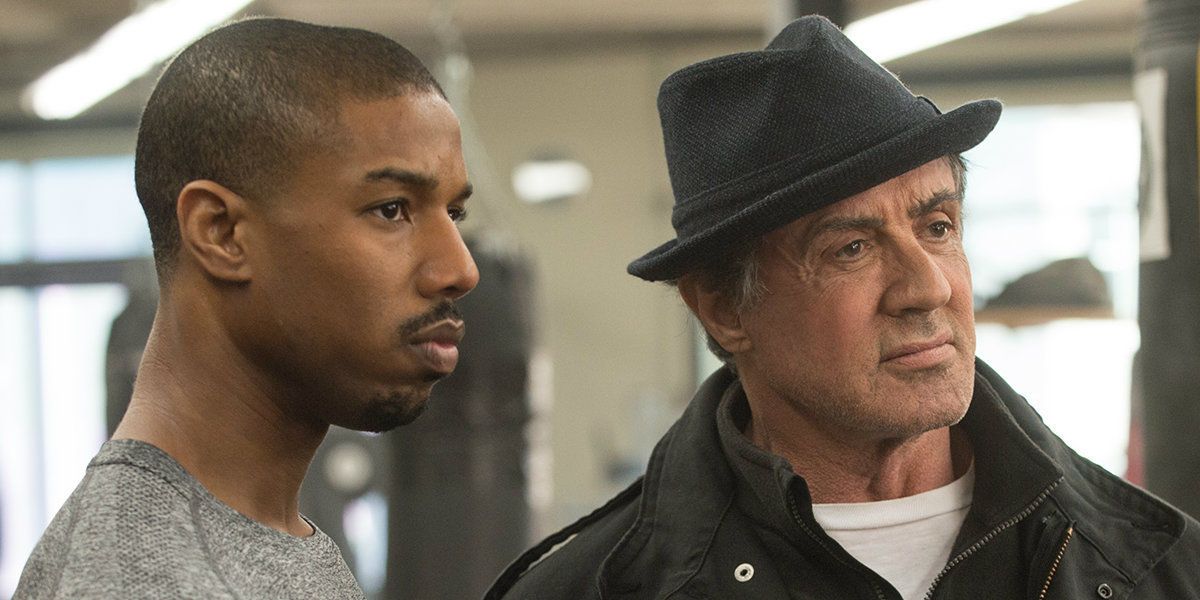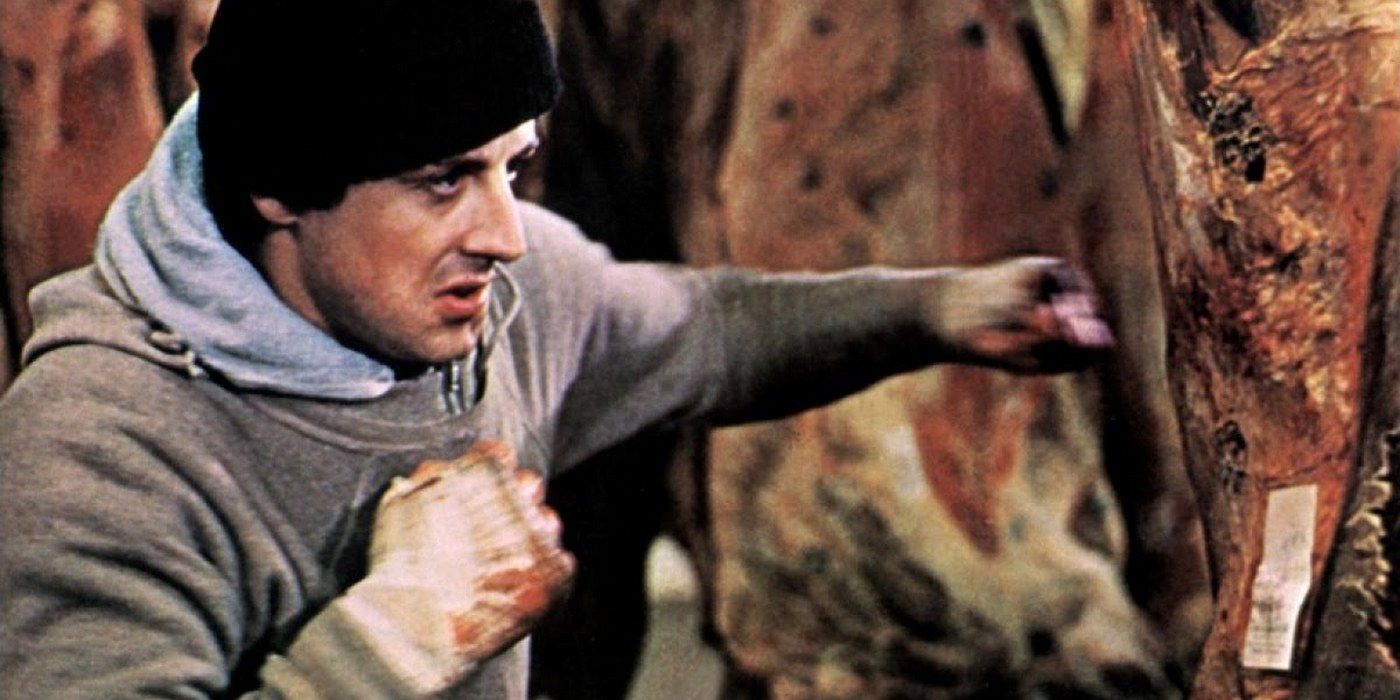For all of its grotesque bloodletting, bombastic trash talk, and overt egotism, boxing is an intimate sport about dignity and self-respect. In 2015's Creed, Sylvester Stallone's Rocky tells his young apprentice that boxing isn't about fighting an opponent; it's about entering the ring as one man and leaving as different and better man. "It's you against you; he's just in the way."
The films on this list all embody that philosophy of using boxing to justify one's own existence and proving their self-worth, while disproving the nay-sayers. However, we only wanted to include movies where actual boxing matches were central to the plot; classics like The Quiet Man and On The Waterfront failed to make the cut because, while boxing plays a key role in the backstories of those films, they don't much factor into the immediate storylines of the movies, that legendary "I coulda' been a contender" speech notwithstanding.
With that in mind, here are the 15 Greatest Boxing Movies Of All Time.
15. Cinderella Man
Lately, Ron Howard's been having a difficult time as his most recent film, Inferno, is crashing and burning at the domestic box office. It's the latest in a string of flops for the director, including In the Heart of the Sea, Rush, and The Dilemma. The talented Howard really hasn't had a commercially successful hit since 2009's Angels & Demons.
However, just because a film doesn't make box-office headlines, doesn't mean it's not a great movie. In 2005, Ron Howard directed Russell Crowe in Cinderella Man, based on the true story of Irish boxer James Braddock. While boxing historians took umbrage with the overly villainous portrayal of Heavyweight Champion Max Baer, there's no denying the palpable emotion in the story of Braddock, a man who represented the poverty-stricken working class of America during the Great Depression.
Despite reuniting director Howard with his A Beautiful Mind star Crowe and tackling an exciting and inspirational story, Cinderella Man, even with glowing reviews, failed to make its mark on the box office. Unlike A Beautiful Mind, which managed to make over $300 million worldwide from a moderate budget of $58 million, Cinderella Man could only muster up a global total of just $108 million, while working on a considerably larger budget of $88 million.
14. Million Dollar Baby
Clint Eastwood is one of those directors whose body of work is so broad that it's impossible to narrow down his career to a single magnum opus. Still, the ultimate tough guy was at the top of his game when he directed and co-starred in Million Dollar Baby, a film which won four Academy Awards, including Best Picture and Best Director. Hillary Swank won the Oscar for Best Actress for her role as Maggie, an amateur fighter who finds herself under the wing of Eastwood, a firm-but-fair mentor.
Every boxing movie is about how people fight to live the way they want to live, whether it be earning financial independence or conquering inner demons. Without spoiling the film's shocking twist ending, Million Dollar Baby is about how not every fight can be won, and the ways in which loss can be handled with grace and dignity. It's about friendship and loyalty, and the lengths to which people are willing to go to honor the wishes of their loved ones.
13. Ali
Another film that earned top marks from critics but failed to impress at the box office is the Michael Mann/Will Smith collaboration Ali, based on the life of the all-time greatest champion ever to grace the sport, Muhammad Ali. Will Smith was nominated for an Oscar for his performance as the fighter formerly known as Cassius Clay, and director Mann tackles not only the man, but the era of 1964-1974. The film also touches on Clay's discovery and championing of Islam, his controversial objection to the Vietnam War, and his complicated relationship with figures like Malcolm X.
Mann's distinct visual language and flair for sequences set to popular music shines through here, though one should expect nothing less from the one-time showrunner of Miami Vice. The fight scenes, in particular, shine with a stunning mix of grandiose imagery and the close-quarters intensity of real boxing. It's true: no punches were pulled, and Will Smith actually took some staggering blows to the face while shooting the film. The real-life Ali was deeply impressed by Smith's portrayal; when Muhammad Ali passed away in 2016, Smith acted as a pall bearer at his funeral.
12. The Fighter
Mark Wahlberg and Christian Bale starred in The Fighter, based on the true story of Micky Ward (Wahlberg) and Dicky Eklund, two brothers in the world of late 1980s professional boxing. Christian Bale won the Oscar for Best Supporting Actor for his role as Eklund, who was once a promising star of the sport. Having gone the distance, surviving ten rounds with Sugar Ray Leonard, he ultimately finds himself in the midst of an addiction to crack. When the film begins, he is training his brother Micky, though family drama and financial troubles, not to mention the judgement-impairing qualities of crack cocaine, cause immense strain in the brothers' relationship.
The Fighter was Wahlberg's passion project for the better part of five years, and the actor got into stunning shape for the role, going so far as to refuse a stunt double and opt to perform his fights himself, such was his desire for unrivaled authenticity. Thanks to director David O. Russell, the film is presented as, essentially, an R-rated version of Rocky, with the added twist of a complicated family dynamic and a real-life parable about the downward spiral of drug addiction. That the lows are so unbearably low allows the eventual triumphs to be that much more effective.
11. Body and Soul
After the end of World War II, professional boxing had its reputation marred by accusations of criminal influence. The extent of mafia interference in the outcome of matches will never truly be fully understood, but the shadiness of boxing, combined with its unrepentant celebration of violence, gives it a much darker edge than most other sports. This perceived darkness made boxing the perfect backdrop for film noir movies of the 1940s and 1950s.
One of the best of those films is Body and Soul, about a boxer whose struggle for success is undermined by the greed of powerful men. It's a thinly-veiled parable about capitalism and how the system is rigged towards rich and powerful manipulators, at the expense of honest, hard-working people. The film's writer, Abraham Polonsky, would eventually be blacklisted during the dark days of the Red Scare.
Beyond its controversial themes that still resonate to this day, Body and Soul was also notable for its innovative camerawork. The legend goes that cinematographer James Wong Howe captured the fight scenes by zipping around the set on a pair of rollerskates with a handheld camera. Even among its film noir contemporaries, Body and Soul has a visual style which stands the test of time and has aged incredibly well.
10. Hard Times
In real life, people don't come much tougher than boxers. These are athletes whose livelihood depends on their ability to give and receive fists to the face. In the old days, before concussion-inducing padded gloves were introduced, the sport was even bloodier. Bare knuckle boxing, as it was called, was America's great back-alley pastime, and no film captures the violent spirit of the sport as Walter Hill's Hard Times, starring Charles Bronson as a nameless man of few words with a gift for hand-to-hand combat.
In the annals of Hollywood history, there's never been, nor will there likely ever be, a man as tough as Charles Bronson. Likewise, Walter Hill made a career out of the glorious combination of adrenaline and testosterone with films like The Warriors, The Driver, Streets of Fire, and countless others. Hard Times is simply one of the most masculine movies ever made, with some of the most righteously barbaric face-punching ever caught on film, all wrapped in a tight 1930s period aesthetic.
9. Requiem For A Heavyweight
1956's Requiem for a Heavyweight was Rod Serling's breakthrough success as a writer. He would later go on to create The Twilight Zone, one of the most revered television series of all time. There are no science fiction or supernatural elements in Requiem, however. This is a straightforward story of a washed-up old boxer and his manager, and their turbulent friendship. Jack Palance starred as the fighter in the original television version, while Keenan Wynn played the manager. The Playhouse 90 television broadcast was adapted for the BBC, starring a young Sean Connery, but this version is tragically lost to time.
Perhaps the most well-known version of the story is the 1962 feature film version starring Anthony Quinn and Jackie Gleason. This version is also notable for featuring Muhammad Ali, back when he was known as Cassius Clay, as the young boxer who defeats the aging protagonist early in the film. Both American versions are heartfelt stories about pride, trust, and loyalty, and carry Rod Serling's signature combination of gritty realism and compassionate sentimentality.
8. Soul Power & When We Were Kings
In October of 1974, Muhammad Ali and George Foreman fought in "The Rumble in the Jungle". This event was billed as the sporting event of the century, and was preceded by a three-day music festival, "Zaire 74". However, after Foreman was injured while training, the fight was pushed back a month, while the concert, held on the originally scheduled dates, became a legendary event in its own right.
There are two incredible documentaries on the subject: When We Were Kings, which chronicles the entire event and climactic battle, and Soul Power, which focuses mainly on the Zaire 74 music festival. The Rumble in the Jungle was a celebration of black power; after all, they don't get much stronger or more charismatic than Muhammad Ali and George Foreman. Likewise, there are few musical acts which can compete with the likes of James Brown, B.B. King, and Bill Withers, all of whom performed at Zaire 74. While Soul Power contains plenty of interviews and behind-the-scenes footage, it's mostly a concert film focusing on the unifying power of funky rock and roll. Meawhile, When We Were Kings goes more in-depth with the fighters. Together, the two films form a beautiful snapshot of black power.
Of course, the event was not without controversy, as President Mobutu Sese Seko of Zaire was a ruthless military dictator, a fact which neither documentary shies away from discussing. Basically, he was the only guy willing to foot the bill for the massive ordeal, and that was enough for promoter Don King, Seko's history of extensive human rights violations be damned.
7. The Boxer
It's no secret that Daniel Day-Lewis has a golden touch. Practically all of his performances have earned universal acclaim, and he is highly respected as a tremendous method actor who pours his entire being into every role. To that end, it should come as no surprise that the man has three Oscars for Best Actor under his belt. Though he missed the big golden statue for his role in 1997's The Boxer, he was at least recognized with a Golden Globe nomination for his work on the film, directed by Jim Sheridan.
While this film is often overlooked in the storied history of DDL's career, the thespian delivers one of the most intimate and subtle performances of his life as Danny Flynn, a fighter and criminal who tries to turn his life around and find love (with Emily Watson!) after being released from prison. Unfortunately, tensions among the different factions within the IRA lead to violence and drama. Boxing is presented as a place where fighters can escape society and the personal baggage of their lives. The Boxer also presents a violent and realistic view of Ireland in the closing years of The Troubles.
6. The Great White Hope
This 1970 film, starring James Earl Jones and Jane Alexander as an interracial couple, was an adaptation of the Tony Award-winning Broadway show, The Great White Hope, which was itself based on the true story of Jack Johnson, one of the all-time greats of the sport. It should come as no surprise that American history is filled with and defined by racial hatred and prejudices. In 1908, Johnson became the first black Heavyweight Champion of the World, leading to cries for a "great white hope," a white challenger who would take back the title from this black man. Oh, and Johnson was also controversial for marrying a white woman, which was seen as an affront to the white supremacy of the era.
The movie fictionalizes and dramatizes many elements of the true story, but it is still true to the essence of Johnson's legacy, the struggles he faced, and the impossible difficulty of being a black champion, or even black at all, in a white nationalist society. For those looking for a documentary on Johnson's life, we recommend Ken Burns's documentary, Unforgivable Blackness: The Rise and Fall of Jack Johnson, which chronicles his life with Burns's signature attention to painstaking detail.
5. Champion
They say it's lonely at the top, and no film captures the ruthlessness of a narcissistic egomaniac like 1949's Champion, starring Kirk Douglas as a boxer who doesn't care how many lives he will ruin on his quest to become the best. In boxing movies, even with trainers and mentors and romantic interests, a fight ultimately comes down to the fighter and his opponent. Movies like The Champ and Rocky (more on those on a bit!) are all about using fighting as a way to prove self-worth and integrity.
Champion, on the other hand, is about a big jerk who lacks the humility of self-respect. A fighter is responsible for his own success, but also his own failure, and Champion is an uncompromising film noir about the perils of selfishness and greed. Douglas was nominated for an Academy Award for his performance, and Champion can be seen as a companion piece with 1947's Body and Soul. In that film, a good man and great fighter is beaten down by a broken system, while Champion features a cruel man who is a great fighter fighting his way to the top, only to discover what an empty victory really feels like.
4. The Champ
Franco Zeffirelli is best known for his work directing Shakespeare adaptations like 1967's The Taming of the Shrew, 1969's Romeo & Juliet, and 1990's Hamlet. This gift for bombastic melodrama surely came in handy while directing the 1979 remake of the 1931 classic, The Champ. While both the original and the remake were met with middling response from critics of their time, both films resonated strongly with audiences due to their intimate stories and emotional performances.
In both films, a retired boxer (Wallace Beery, Jon Voight) makes a late-career comeback in order to provide for his son (Jackie Cooper, Rick Schroder). Their life on the road is tough, but the bond between father and son is unshakable, and it's up to "Champ," as his son calls him, to be the great man his son already believes that he is. The 1931 version is considered by many to be the first great boxing film, but we have to give the edge to the remake. Let's just say that there's not a person alive who isn't reduced to a crying wreck by the end of the 1979 film.
3. Raging Bull
Choosing a favorite Martin Scorsese movie is a painstakingly impossible task; the man gave us Taxi Driver, Mean Streets, Goodfellas, and After Hours, among so many other timeless classics. However, one film that consistently ranks at or near the top of his catalog is 1980's Raging Bull, a brutal look at the self-destructive life and times of Jake "The Bronx Bull" LaMotta, one of the most famous fighters ever to step into the ring.
Scorsese isn't actually a fan of boxing, or sports in general. This borderline contempt for the pugilistic pastime is evident in his visceral depiction of the film's numerous fights, which have a barbaric edge which is simply unmatched in the genre. LaMotta's signature fighting style was aggressive, to say the least; the man was willing to get in his opponent's face and take numerous blows to his own head because he knew that he could return the pain in even greater measure. Of course, the real impact of the film comes from its depiction of LaMotta's personal life, in which he self-sabotaged his career, his marriage, and his relationship with his brother. Best of all, the unrelenting drama is delivered through the use of timelessly raw black & white photography.
2. Creed
Legends never die. Nobody needs a list about boxing movies to know that Rocky is one of the greatest motion picture achievements of all time, but that film's enduring legacy is nothing short of astonishing. Even after the sixth film seemingly wrapped up the entire series, Sylvester Stallone took his legendary character out of retirement to pass the torch to the next generation, in 2015's Creed.
Director Ryan Coogler (Fruitvale Station, Black Panther) takes the tried-and-true blueprint of 1976's Rocky and brings in a unique character, Adonis Johnson (Michael B. Jordan), to offer a fresh spin on the story. Unlike Rocky's humble Philadelphia roots and working-class status, Adonis is the son of Apollo Creed, and willingly leaves behind his life of luxury in an attempt to learn why he wants to fight, why he needs to be in the ring. Meanwhile, Stallone returns as Rocky, serving as young Adonis's mentor and father figure.
That Ryan Coogler and Michael B. Jordan weren't nominated for Oscars for directing and acting was an immense disappointment. Audiences reacted to this glaring omission with the #OscarsSoWhite campaign. But, as is central to the theme of the film, it's not about awards and laurels; it's about having self-respect. Creed lives up to the legacy of its predecessors while forging its own identity.
1. Rocky
Rocky Balboa is a character defined by his combination of talent and humility. He's a simple, kind-hearted man, ineffective in his gig as the muscle for a low-rent mob boss. The world has him on the ropes, when, practically out of nowhere, the opportunity of a lifetime falls into his lap: fight Apollo Creed, the heavyweight champion of the world, for a shot at the title. For the first time, this perpetual loser has a chance to prove that he's not as worthless as everyone thinks. After letting his whole life pass him by, Rocky vows to himself that he will fight 12 rounds against Apollo Creed. He may not win, but he promises that he will "go the distance."
Like all the best boxing films, Rocky isn't about blood and muscles-- it's about a man fighting against expectations in order to become a better man. To that end, Rocky makes tremendous use of its setting of 1970s Philly, which emerges as a character in its own right.
After Rocky's tremendous success, numerous sequels followed, all with varying degrees of critical and commercial success. 1990's Rocky V basically killed the franchise, but great fighters always have a chance to turn things around. Against all odds, 2006's Rocky Balboa brought the character back for an unexpectedly triumphant return, and won universal praise for writer/director/star Sylvester Stallone. He may have big muscles and an easily-mocked Brooklyn accent, but Stallone is a seriously gifted auteur, and nowhere is that more obvious than in back-to-back viewings of Rocky and its 30-years-later conclusion, Rocky Balboa.
---
What do you think? Do you agree with this list, or do you have your own ideas? Make your voice heard and sound off in the comments below!

